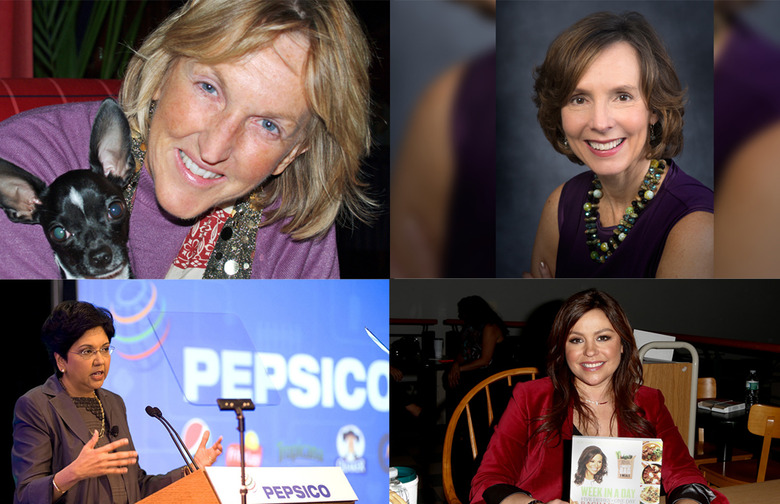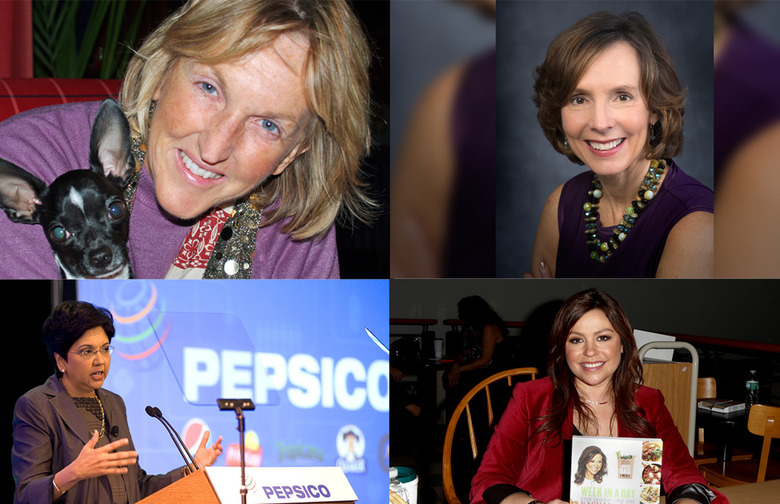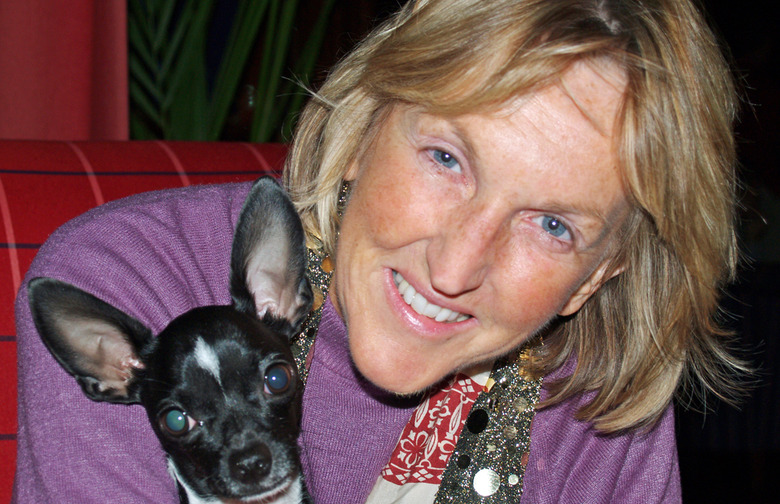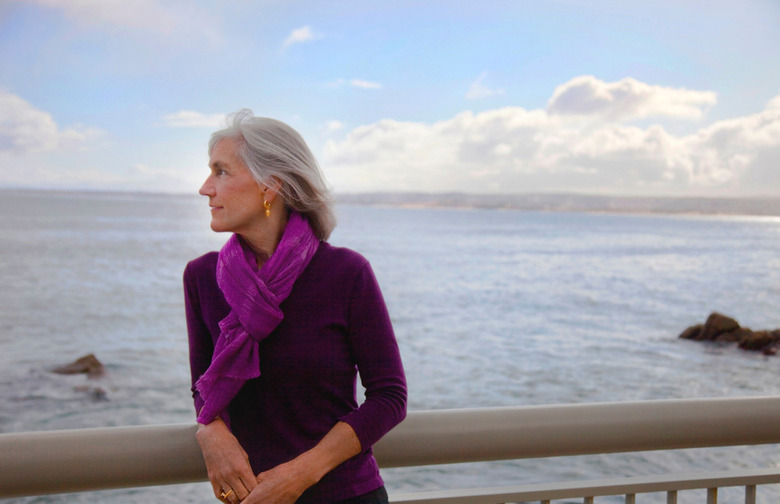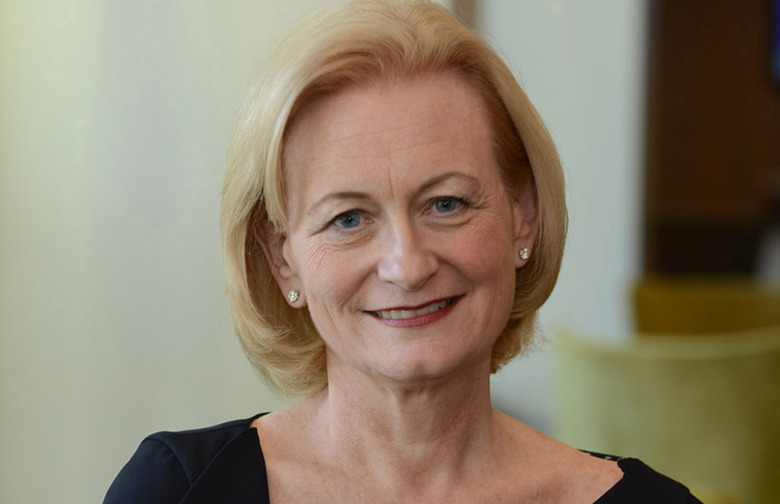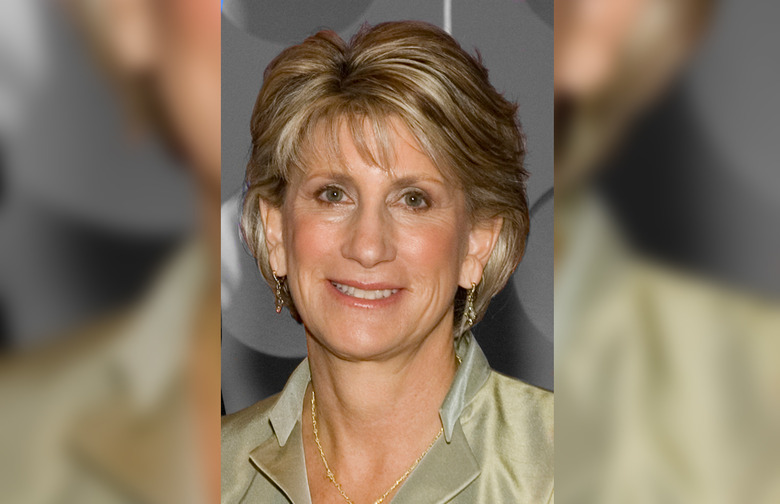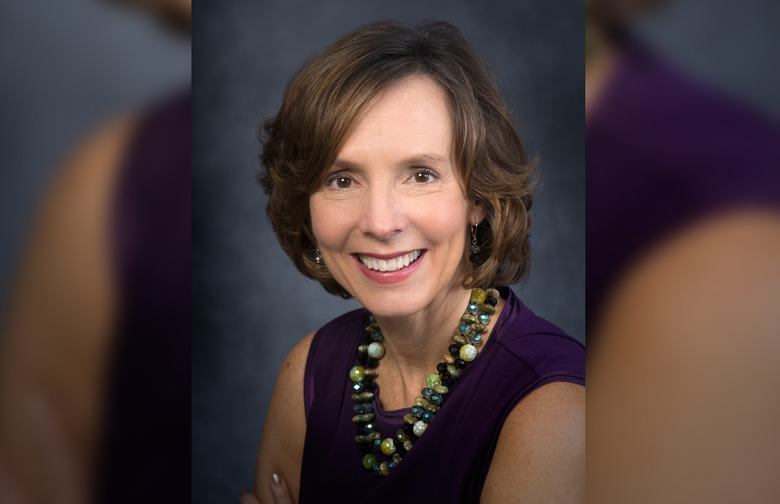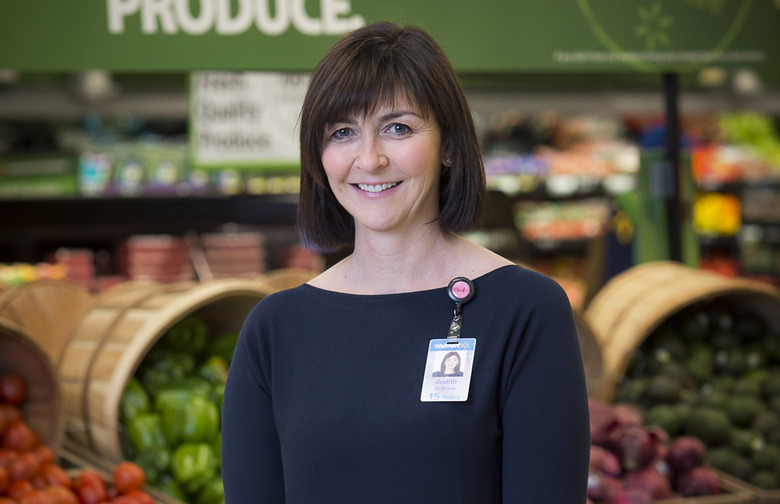The 13 Most Powerful Women In Food
The 13 Most Powerful Women in Food
Run a Google image search for "CEO" and it'll be pretty obvious that the division of power in this country is still dominated by men: The first woman to appear is several rows down, and it's — we're not joking — CEO Barbie. And for the most part, when we think about people in positions of power, we tend to think of men, because such a high percentage of the world's most powerful people are men. But today we're celebrating the women who hold those high-ranking positions, specifically in the world of food.
#13 Vani Hari, “Food Babe”
North Carolina-born Indian-American author, blogger, and food activist Hari has taken such enterprises as Chick-fil-A, Chipotle, Kraft Foods, Subway, General Mills, and Anheuser-Busch to task for their use of various harmful or putatively harmful substances, and the big boys have generally rolled over and removed whatever she was objecting to from their products — which is ultimately good for all of us. She is also a particularly vocal advocate of GMO labeling (and foe of GMOs in general). She definitely makes an impact. Her internet petitions pull in hundreds of thousands of signatures, and last year Time included her on their list of "The 30 Most Influential People on the Internet." Critics point out that she has no background whatsoever in nutrition, and have accused her of promoting psuedoscientific theories around subjects in which she has no expertise. She has also questioned the validity of flu vaccine, and was once quoted as saying "There is just no acceptable level of any chemical to ingest, ever" (though she was specifically referring to ractopamine and grown hormone in meat). Nevertheless, whether everything she says makes sense or not, many, many people — and corporations — listen to her.
#12 Ingrid Newkirk, President and Co-Founder, People for the Ethical Treatment of Animals
The vocal head of this increasingly high-profile organization, Newkirk led the company to another banner year in 2014. They aided in pressuring Ringling Bros. and Barnum & Bailey Circus into ending its elephant acts by 2018, launched a traveling virtual reality exhibit about the life of a chicken, got companies to ban angora wool, and convinced major food companies to end a barbaric horn-removal practice on dairy cows, among other accomplishments. The group's ever-widening influence on government agencies and courts demonstrates the power that the group has harnessed through its sometimes controversial awareness campaigns.
#11 Julie Packard, Executive Director and Vice-Chairman, Monterey Bay Aquarium
Packard, a marine biologist, has run this showplace aquarium since it was opened in 1984 with an endowment from her parents' nonprofit, the David and Lucile Packard (as in Hewlett-Packard) Foundation. In addition to being a first-rate educational facility, the aquarium spearheads numerous movements aimed at ocean conservation. Its most visible immediate effect on the American food community, though, has been through its efforts as a pioneer in the sustainable seafood movement. Chefs and responsible consumers all over the country now consult its Seafood Watch list (in the form of wallet cards, a website, and an app) of sustainable choices in fish and shellfish, thus impacting the seafood marketplace from coast to coast. The Aquarium also hosts an annual Sustainable Foods Institute, addressing such issues as global food security, urban agriculture, and innovations in aquaculture.
#10 Rachael Ray, Television Personality
With her bubbly personality and contagious catchphrases (like "EVOO" and "Yum-O"), Ray appeals to ordinary people, not food snobs or self-styled connoisseurs. In 2006, she launched a successful self-titled daytime TV show, and is currently the editorial director of her own lifestyle magazine, Every Day with Rachael Ray. Her cooking shows are still a Food Network staple, and her influence among daytime talk show-watchers can't be underestimated.
#9 Irene Rosenfeld, CEO, Mondelez International
It was Rosenfeld's decision to spin off Mondelez from Kraft in 2012 to handle North American grocery operations, and before that, as CEO and then Chairman of Kraft, she boosted growth by reinvigorating iconic brands, transformed their portfolio, and expanded its presence in emerging markets. With 2014 revenues of $33 billion, a global initiative intended to broaden the reach of global nutrition efforts and sustainable agriculture, and the 2013 purchase of nine tech startups with the goal of driving mobile marketing and purchasing, Rosenfeld has brought Kraft fully into the twenty-first century. The same activist investors who pressured Rosenfeld to break Kraft and Mondelez into two companies are still pressuring her to cut costs and increase revenue, and she's responding by boosting profit margins through tactics like zero-based budgeting and closing old factories, earning her the No. 9 spot on Fortune's 2015 ranking of America's Most Powerful Women.
#8 Oprah Winfrey, Media Mogul
As Queen of All Media, Winfrey has made the careers of such celebrities as chefs Paula Deen and Art Smith and the health and diet gurus known as Dr. Phil and Dr. Oz. When she decided that an obscure tropical fruit call the açai berry was the next magic elixir, sales of açai-flavored products soared. When she warned viewers about the dangers of eating contaminated meat during the Mad Cow hysteria, she worried Texas cattlemen so much that they filed a multimillion-dollar defamation suit against her (they lost). While Winfrey no longer has her famous daily talk show, her influence is still felt through her cable network OWN, as well as her monthly magazine O. And if anyone has any doubt that her influence is on the wane, all they have to do is look at Weight Watchers' stock's 105-percent jump since she announced the purchase of a 10 percent stake in the company last October.
#7 Dawn Sweeney, President and CEO, National Restaurant Association
The NRA that has been in the news a lot lately isn't this one (alas) — but as the country's main food-service lobbying organization, the National Restaurant Association represents more than 500,000 establishments around the country, from fine-dining restaurants and fast-food chains to food suppliers and nonprofits. It has also set up food safety programs; it provides scholarships in hospitality and culinary studies, assists its members with maintaining sound environmental practices, and runs the Kids LiveWell campaign encouraging restaurants to serve healthy options for children — while meanwhile opposing Obamacare and efforts to raise the minimum wage.
#6 Kathleen Finch, Chief Programming, Content & Brand Officer, Scripps Networks Interactive
This former CBS news producer, who was born in Greenwich Village and once accompanied Martha Stewart on a lifestyle reporting visit to Cuba, signed on to theFood Network in 1999, and has since taken on an increasing number of duties, earning her present title and cornucopia of responsibilities in 2013. Her purview now includes not just Food Network and its sibling, Cooking Channel, but also the increasingly food-heavy Travel Channel (hey, there, Anthony Bourdain; wassup, Adam Richman?; lookin' good, Andrew Zimmern) — not to mention HGTV (whose shows include Spice Up My Kitchen and Restaurant Makeover as well as I Wrecked My House and Property Virgins); Great American Country (which touches on food with Southern Fried Everything and, indirectly, Farm Kings); the YouTube-ish ulive (which offers plenty of cooking segments); and the non-food-related DIY Network. With the exception of Top Chef, Gordon Ramsay's various shoutfests, and a handful of other shows, if you watch food TV, chances are pretty good that you watch something Finch has her hands on. Much has been written about declining viewership for Food Network, but it's still the big player in the field, averaging six million viewers a day.
#5 Patricia Woertz, Chairman, President, and CEO, Archer Daniels Midland
Providing agricultural storage and transportation services and operating more than 265 plants worldwide where cereal grains and oilseeds are processed into products used in the food, beverage, nutraceutical, industrial, and animal feed industries, Archer Daniels Midland has been named three times by Fortune as the world's most admired food production company (among other things, it partners with Feeding America). At the head of the table is Patricia Woertz, who has brought ADM to record financial results — its 2014 revenues were $81.2 billion — while growing its sourcing, transportation, and processing networks through select acquisitions.
#4 Pamela Bailey, President and CEO, Grocery Manufacturers Association
You might not have heard of the Grocery Manufacturers Association, but it plays more of a role in your life than you may think. The GMA is the world's largest trade association representing the food, beverage, and consumer products industry. Many of the world's top food companies are represented, like ConAgra, General Mills, Unilever, Cargill, and Mars, and together they take on big issues: Their current battle is over GMO labeling (they're against it) and the right to call foods with GMOs "natural." As President and CEO, Bailey is the most visible member of the organization, working to deliver its messages to the American people in a clear, concise way that paints the companies the association represents in the best possible light. It's a tricky job, but somebody's gotta do it.
#3 Susan Neely, President and CEO, American Beverage Association
Neely heads the American Beverage Association, a powerful lobby that's spent tens of millions of dollars over the years (including nearly $19 million in 2009) to advance the interests of some of the country's largest non-alcoholic beverage companies and bottlers, including Coca-Cola, PepsiCo, and Nestlé. Recent initiatives include improving labeling and shrinking bottle sizes in an effort to fight obesity, leading the charge against former Mayor Bloomberg's proposed "soda ban" in New York City, and fighting proposed soda taxes.
#2 Indra Nooyi, Chairman and CEO, Pepsi
With a portfolio that includes Frito-Lay, Quaker, Pepsi-Cola, Tropicana, Aquafina, and Gatorade, PepsiCo owns what is almost certainly the world's largest collection of food and beverage brands, including 22 different product lines that each generate more than $1 billion in annual sales. (Their salt and sugar bills must be enormous.) Since being named to her current position as head of PepsiCo in 2006, Nooyi was named Fortune's "most powerful woman" five years in a row (she placed second in 2011, 2012, 2013, and 2015, and third in 2014). While Nooyi has spearheaded new lines of nutrition-conscious products (like stevia-sweetened orange juice and reduced-fat potato chips), landed a huge deal with the NBA, and removed aspartame from Diet Pepsi, shareholders are reportedly unhappy with her efforts in the soft drink field, where Pepsi has lost market shares to its longtime rival Coca-Cola. Still, Nooyi remains adamantly against splitting up their beverage and snack divisions. Four percent organic revenue growth in 2014 should keep them at bay, for now at least.
#1 Judith McKenna, EVO and COO, Walmart U.S.
Though it sells many other kinds of merchandise as well, Walmart is the world's largest grocer, and more and more consumers are buying their groceries at big-box stores like Walmart and Target than ever before. As head of Walmart's $288 billion domestic business, Judith McKenna (who was promoted from chief development officer in December 2014) has increased store traffic for the first time since 2012, opened four new e-commerce fulfillment centers, helped to lead the starting wage increase to $9, and vastly expanded the store's online grocery shopping services, leading to her ranking as No. 30 onFortune's America's most powerful women.
